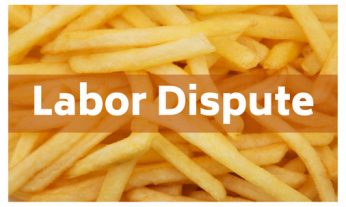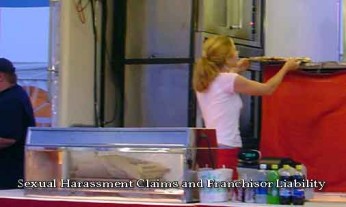 Labor dispute; joint employer or franchise? After years of complaints and protests against low wages and other labor issues, the National Labor Relations Board (NLRB) eventually issued grievances against McDonald’s in 2015. Wage and labor complaints from multiple franchises in California cities and others across the country were consolidated. Beneath all the labor issues lies the question, is McDonald’s USA a joint employer of franchise employees, and therefore responsible for the treatment of employees at individual franchises?
Labor dispute; joint employer or franchise? After years of complaints and protests against low wages and other labor issues, the National Labor Relations Board (NLRB) eventually issued grievances against McDonald’s in 2015. Wage and labor complaints from multiple franchises in California cities and others across the country were consolidated. Beneath all the labor issues lies the question, is McDonald’s USA a joint employer of franchise employees, and therefore responsible for the treatment of employees at individual franchises?
Labor Dispute Issue
The central problem in the lawsuit surrounds franchise operators’ response to employee demonstrations. McDonald’s workers claim they were fired after participating in protests organized by a labor advocacy group called Fight for $15. According to the group, workers across the country lost their jobs simply for participating in these protests.
The Lawsuit
So who is responsible for the actions of individual franchises? Does the mother corporation hold any liability when their franchises are found guilty of labor or safety violations? What implications would a decision one way or the other have on the way business is conducted across the nation?
McDonald’s argued that it simply rents out its brand to individual franchises, and every franchise is an independent business. Policies are particular to each business, and are out of the corporation’s hands.
Conversely, the NLRB hoped to expand the joint employer doctrine, extending liability to corporations to whom they franchise their brands.
Many observers felt that a ruling against McDonald’s—naming it as a joint owner–would increase franchisors’ vulnerability to legal action, toppling the franchise model altogether. Anxious to avoid having to agree that it is a joint employer, McDonald’s agreed to a settlement in which they admitted no wrongdoing, but resolved claims with an undisclosed payout to employees.
Fight for $15 was not quite as eager to settle the case, arguing that McDonald’s needed to publicly take responsibility for surveilling, harassing and firing employees who were simply standing up for themselves against paltry wages by engaging in legally protected activity.
So how did the judge respond to the proposed labor dispute settlement?
Not so Fast…
Administrative Law Judge Lauren Esposito found that unfair practices by the McDonald’s chain were not adequately addressed, and the proposal was summarily rejected.
McDonald’s USA responded with disappointment, noting that expensive, time-consuming labor dispute litigation would extend for months or years to come. The possibility of an appeal of the court’s decision is being evaluated.
Fight for $15 was delighted with the labor dispute ruling, hoping to hold McDonald’s feet to the fire and force the corporation to take responsibility for the wages and working conditions employees suffered. Everything is on hold while both sides decide how to proceed. [Read more…]

